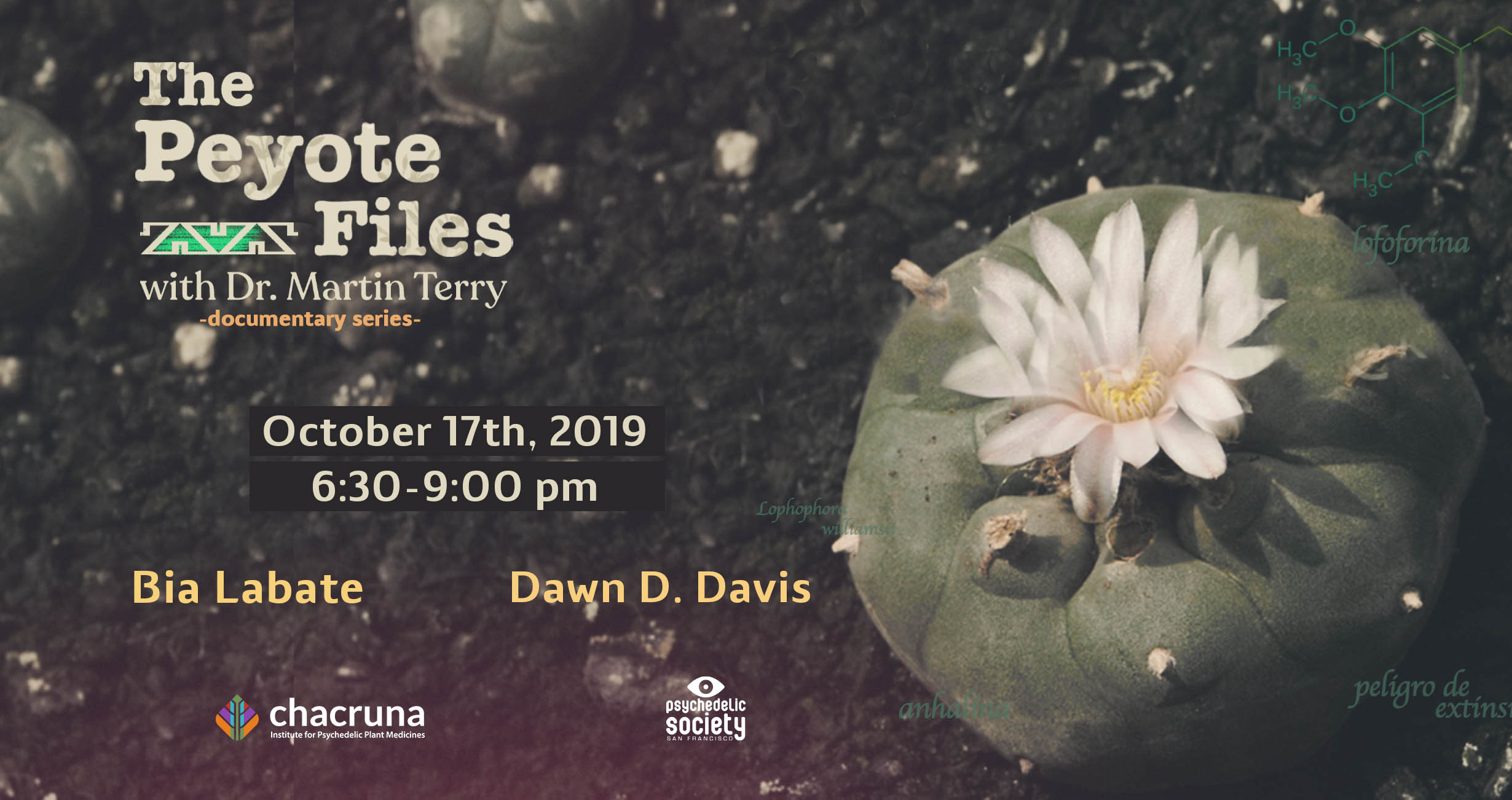- Meet Chacruna at Psychedelic Science 2025 - May 27, 2025
- Psychedelics and Attachment: Fundamentals, Implications, and New Frontiers - May 16, 2025
- Development Outreach Internship (OPEN) - May 6, 2025
San Francisco Psychedelic Society and Chacruna Institute Community Meeting Series on Psychedelics, Music, Integration, Policy and Culture
October 17th, 2019
6:30-9:00pm
Location: The Haven 3007 Telegraph Ave, Oakland
Tickets here
The Peyote Files
with Dr. Martin Terry
A Documentary Series
Co-directed by Bia Labate and Nicholas Spiers
Produced by the Chacruna Institute for Psychedelic Plant Medicines
Special participation Q & A: Dawn D. Davis and Martin Terry
The Peyote Files is a documentary web series following the anthropologist Dr. Bia Labate in the search for the elusive peyote cactus in West Texas. Built around the frank exchanges between Bia and the cactus expert and conservationist Dr. Martin Terry, this three-part series offers an eye-opening insight into Martin’s pioneering work to understand the threats faced by peyote and the urgent action needed to ensure its survival. In episode one (Peyote Territory) Bia and Martin trek through peyote’s natural habitat and discuss its unusual morphology, psychoactive nature, history of human interest, and Martin’s irrepressible zeal for all things cacti. Martin’s rigorously scientific understanding of peyote’s evolutionary context challenges the mystical assumptions often underpinning the role of its psychoactive properties. Returning to Alpine in episode two (Peyote Threats), Martin shows Bia the collection of peyote cacti he nurtures and studies in his fortified greenhouse—following strict DEA regulations—and explains the current threats to peyote populations, such as the destruction of peyote’s habitat and the pressures of overharvesting. In episode three (Peyote Conservation), Martin outlines the research and action he is carrying out, along with the Cactus Conservation Institute, to mitigate these threats, including spreading awareness of sustainable harvesting techniques, the impact of frequent, repeat harvesting, and the urgency of cultivation. Throughout the series, different epistemological approaches to, and ontological conceptions of, peyote are discussed, as well as the political implications of protecting an indigenous sacrament. This series represents a testament to Martin’s tireless conservation efforts and a call to action to recognize and respect the right to exist of this extraordinary cactus, before it’s too late.
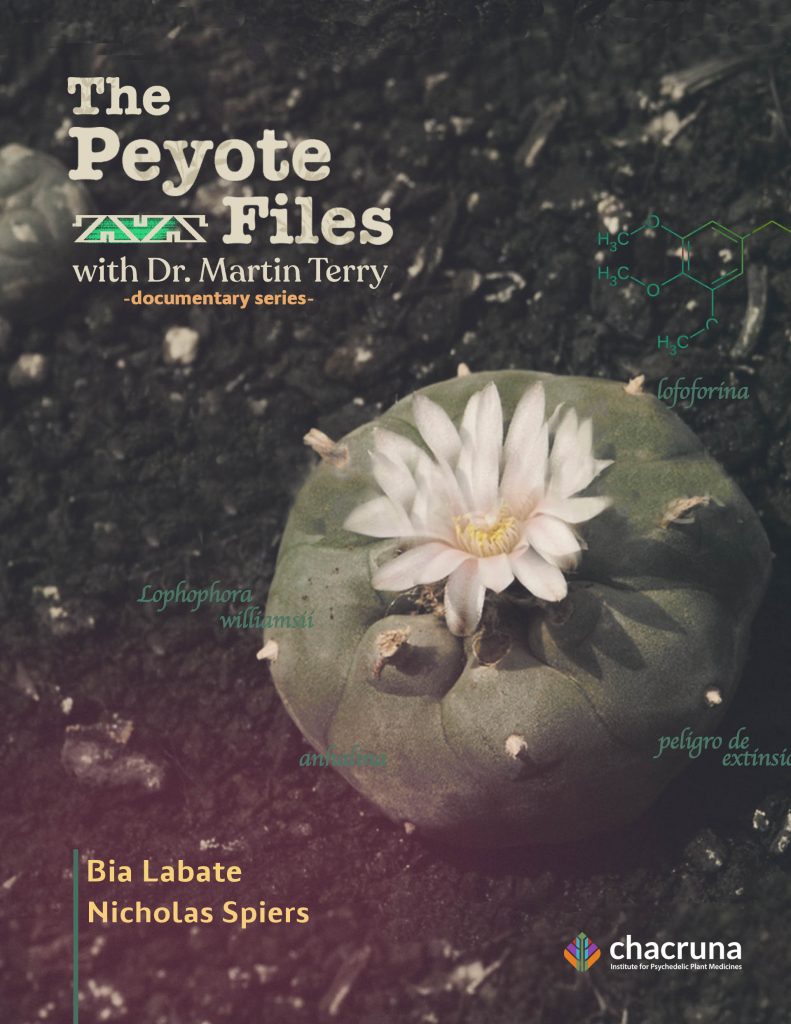

Dr. Beatriz Caiuby Labate (Bia Labate) is a queer Brazilian anthropologist who immigrated to the U.S. in 2017. She has a Ph.D. in social anthropology from the State University of Campinas (UNICAMP), Brazil. Her main areas of interest are the study of plant medicines, drug policy, shamanism, ritual, and religion. She is Executive Director of the Chacruna Institute for Psychedelic Plant Medicines (https://chacruna.net), an organization that provides public education about psychedelic plant medicines and promotes a bridge between the ceremonial use of sacred plants and psychedelic science. She is Adjunct Faculty at the East-West Psychology Program at the California Institute of Integral Studies (CIIS) in San Francisco, and Visiting Professor at the Center for Research and Post Graduate Studies in Social Anthropology (CIESAS) in Guadalajara. She is also Public Education and Culture Specialist at the Multidisciplinary Association for Psychedelic Studies (MAPS). She is co-founder of the Interdisciplinary Group for Psychoactive Studies (NEIP) in Brazil, and editor of NEIP’s website (http://www.neip.info), as well as editor of the Mexican blog Drugs, Politics, and Culture (http://drogaspoliticacultura.net). She is author, co-author, and co-editor of twenty books, one special-edition journal, and several peer-reviewed articles (http://bialabate.net).

Dawn D. Davis is a mother, a wife, and a PhD student at the University of Idaho in the Natural Resources program. Her current research uses GIS as one tool to analyze the environmental and anthropogenic issues that surround the revered peyote (Lophophora williamsii) plant, which is integral to her spiritual practice as a Shoshone-Bannock Tribal woman. She is a twice awarded National Science Foundation recipient as a fellow under the Integrative Graduate Education Research Traineeship and as an Indigenous Science Technology Engineering and Math scholar. Dawn has shared her research among Native American, academic, ethnobotanical, and psychedelic audiences nationally and internationally.
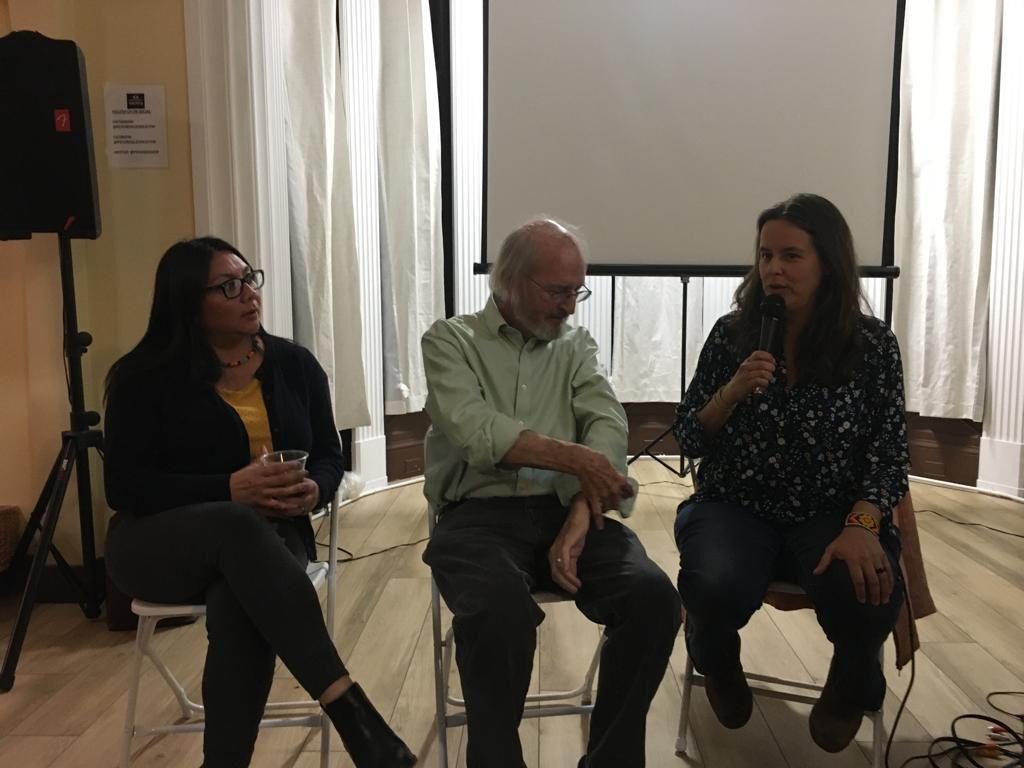
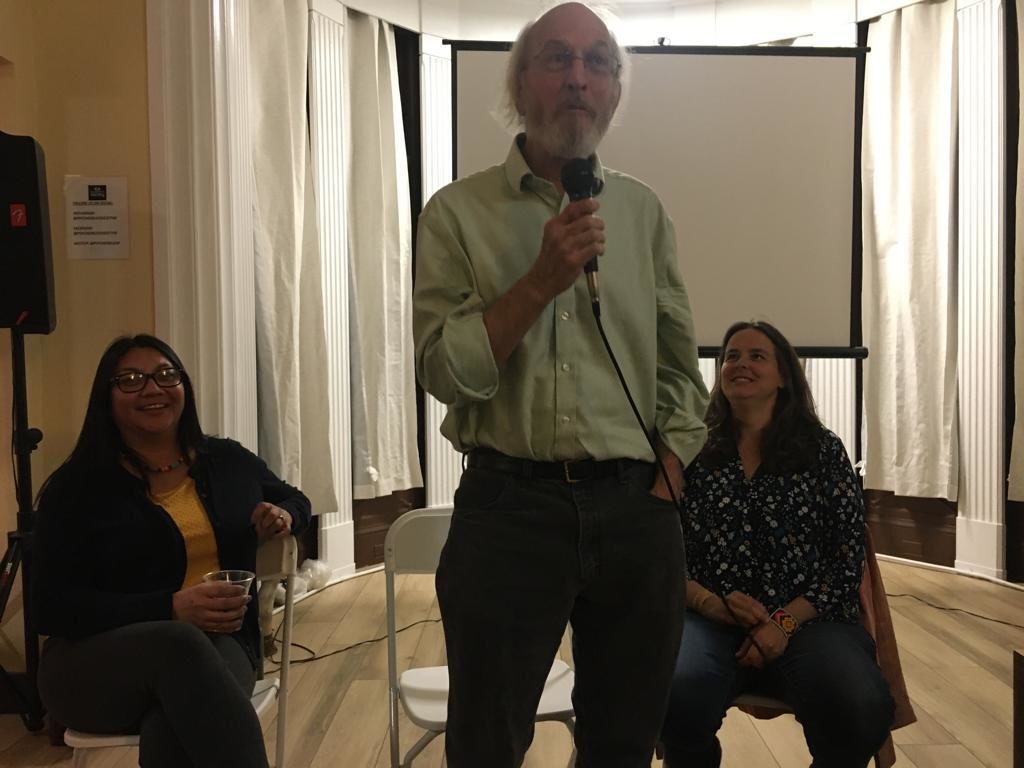
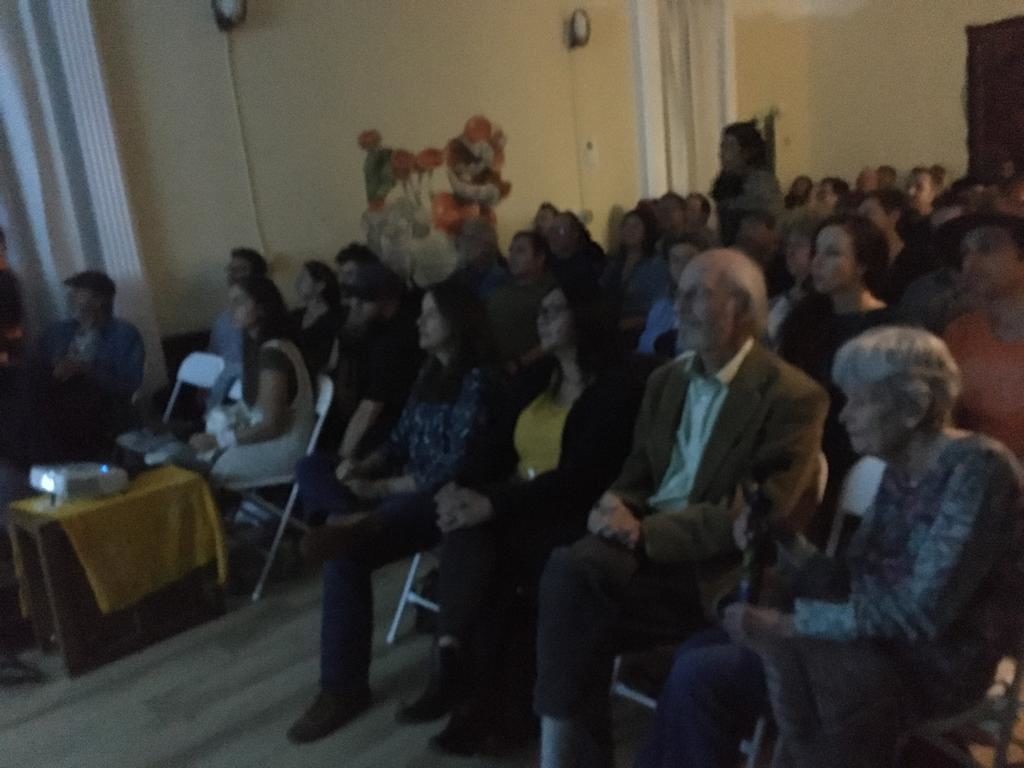
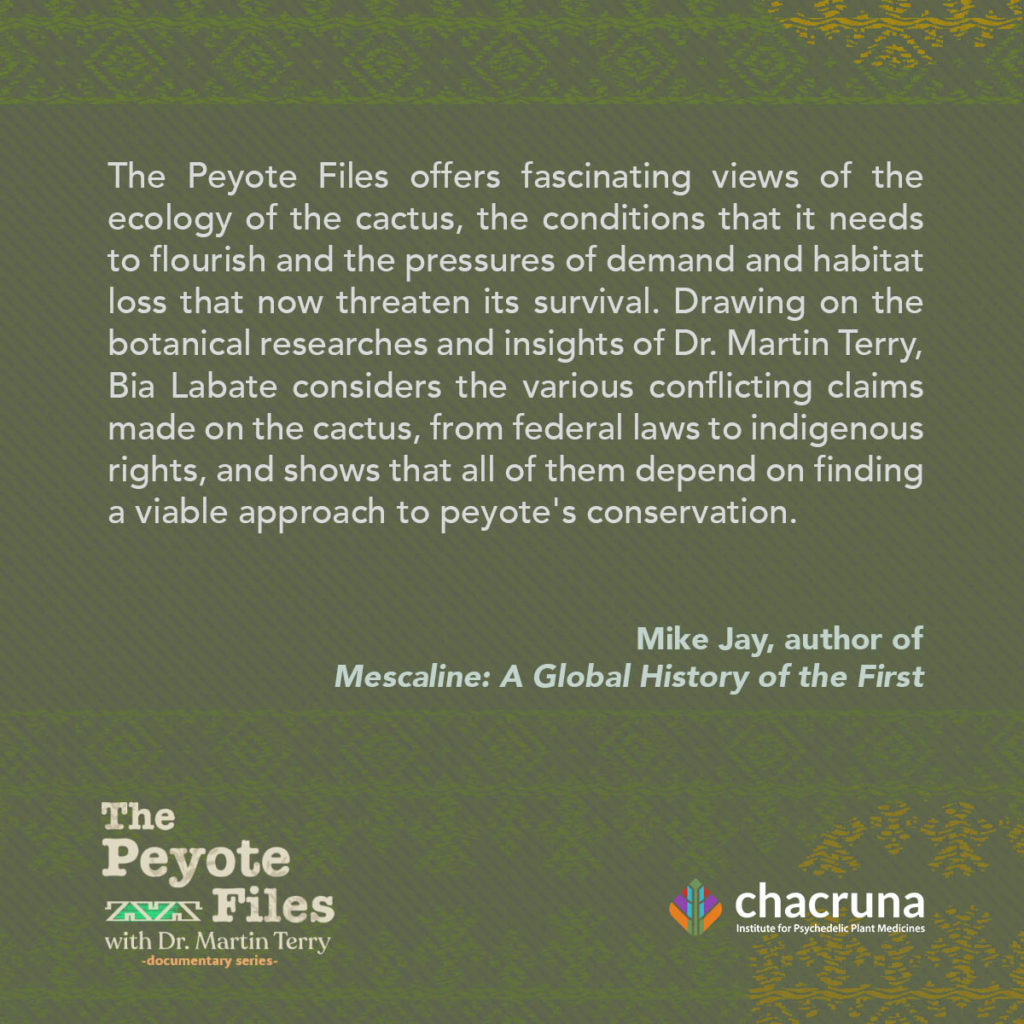
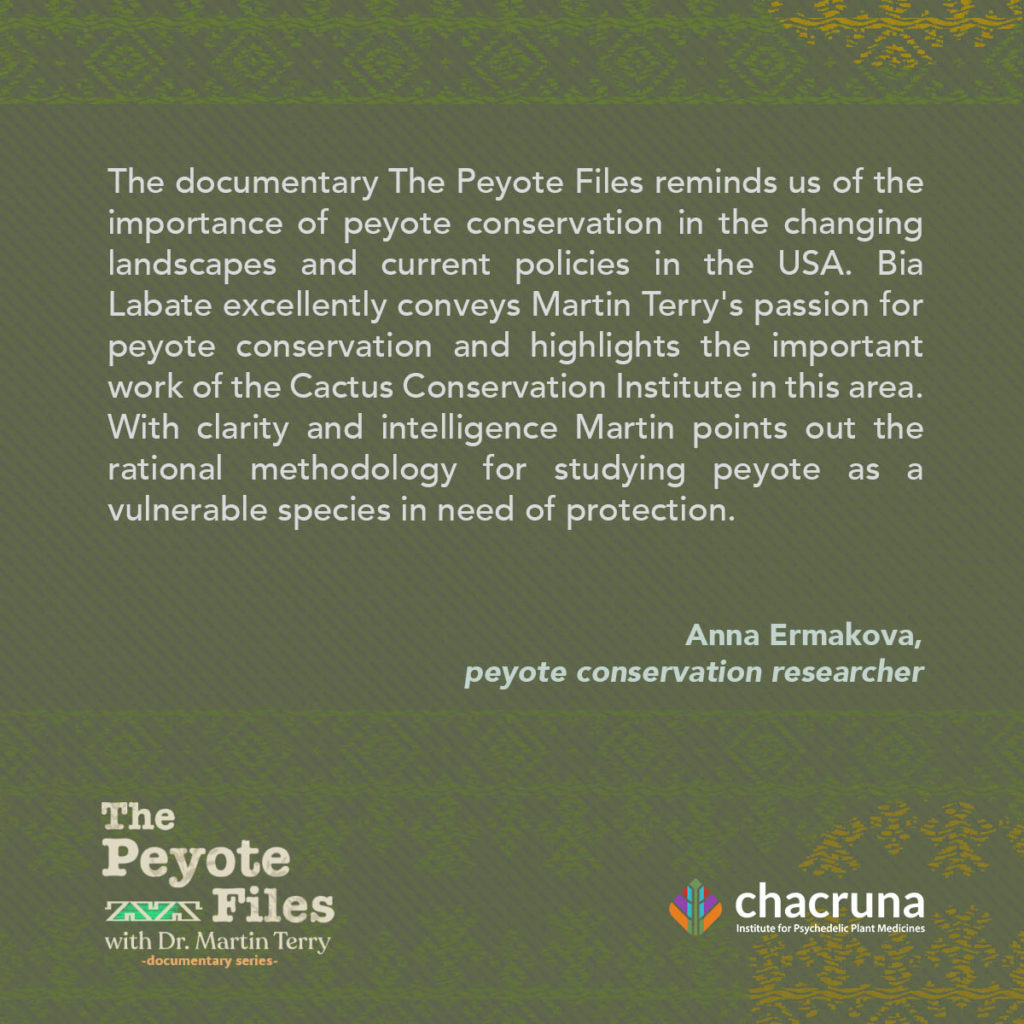
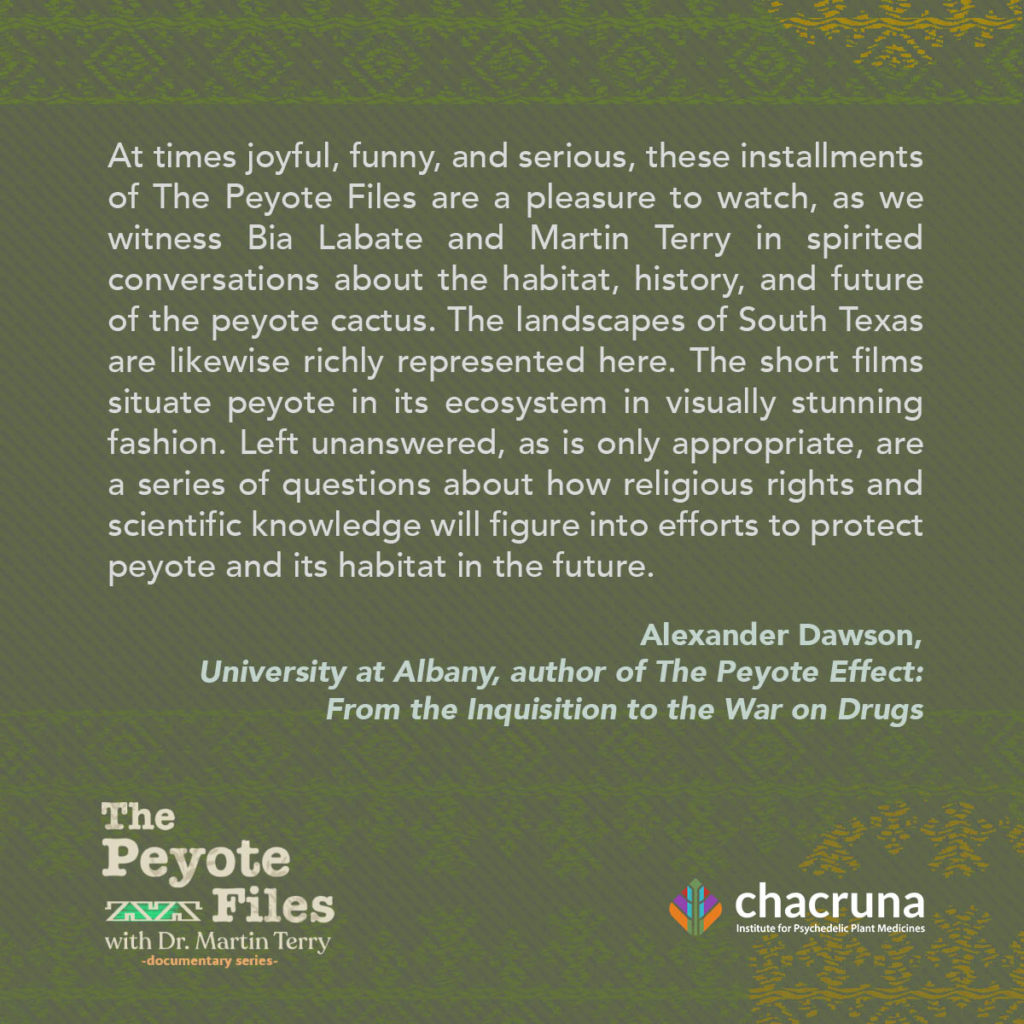
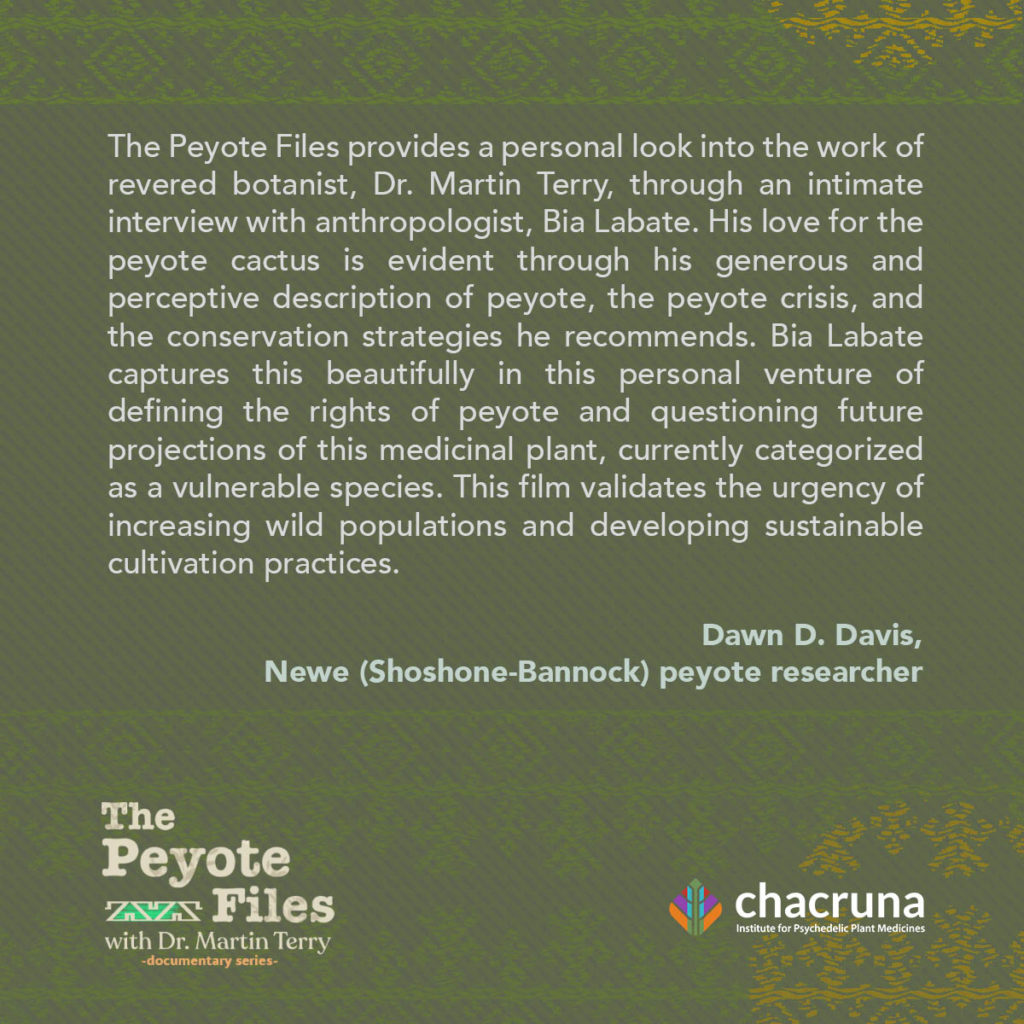
Join us at the Psychedelic Liberty Summit



Take a minute to browse our stock:
Did you enjoy reading this article?
Please support Chacruna's work by donating to us. We are an independent organization and we offer free education and advocacy for psychedelic plant medicines. We are a team of dedicated volunteers!
Can you help Chacruna advance cultural understanding around these substances?


